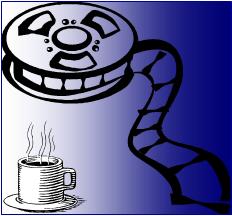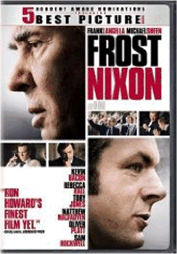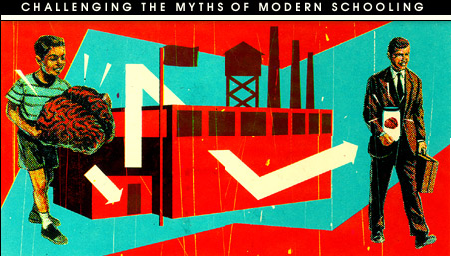

|
 |
Frost/Nixon ___________ 8/10
|
Please go to the new Coffee Coaster site implemented more gracefully in Wordpress. This page: http://brianrwright.com/CoffeeCoasterBlog/?p=5804 |
 Frank Langella ... Richard Nixon
Frank Langella ... Richard Nixon
Michael Sheen ... David Frost
Sam Rockwell ... James Reston, Jr.
Kevin Bacon ... Jack Brennan
Matthew Macfadyen ... John Birt
Oliver Platt ... Bob Zelnick
James Reston, Jr.: You know the first and greatest sin of the deception of television is that it simplifies; it diminishes great, complex ideas, trenches of time; whole careers become reduced to a single snapshot. At first I couldn't understand why Bob Zelnick was quite as euphoric as he was after the interviews, or why John Birt felt moved to strip naked and rush into the ocean to celebrate. But that was before I really understood the reductive power of the close-up, because David had succeeded on that final day, in getting for a fleeting moment what no investigative journalist, no state prosecutor, no judiciary committee or political enemy had managed to get; Richard Nixon's face swollen and ravaged by loneliness, self-loathing and defeat. The rest of the project and its failings would not only be forgotten, they would totally cease to exist.
It's fascinating to peer into history with the knowledge we have today, especially the political history of a particular scoundrel (among many) everyone loved to hate. Moreover, in those days of the antiwar movement and Kent State—which happened on Nixon's watch (1969-1972, 1973-1974)—Nixon was the pontificating lapdog figurehead of what I've been calling 'warlord corporatism'... of the time. He deserved to be hated, at least on the level of form, because he knowingly perpetrated the evils of imperial war to benefit the bankster elites behind the curtain.
Many Americans died or were mangled beyond redemption, and the toll on the civilian populations of Southeast Asia—approximately 4.3 million (1.6 million in South Vietnam alone, the country the American government was supposedly interested in saving from tyranny)—was "Holocaustal." You don't implement and promote such slaughter as a figurehead, then get to apologize and be forgiven for it.
[Any more than GW Bush—spit—can apologize and be forgiven for the wholesale murders he enabled in Iraq and Afghanistan... or for that matter, any more than Barack Obama—clear throat disgustingly—can apologize and be forgiven for continuing the Bush war, torture, and rendition programs (with less obvious American involvement).]
What's interesting about Nixon is that, because he was the embodiment of the crimes of state in Vietnam and because he dicked up expectations that the President should not behave as a common burglar, he stands out among the many American heads of state who have simply danced to the Puppetmasters' tune. Further, the masters quickly seized on the opportunity to cast Nixon as the Ultimate Scapegoat... for the war, for civil liberties violations, for intelligence services' high-villainy, for the petty crimes planned from the Oval Office, etc. By virtue of which these elites acquired even more insidious power.
The elites were hugely successful. It was a marvel to me that for literally millions of Americans, the entire sum of their political philosophy became "Hate Nixon." If you convinced them you hated Nixon enough, they'd let you grow the Leviathan State[1] in any area you wished—from business regulation to incumbent protection (campaign finance) laws to racial quotas to federal control of education, and so on.
Maybe I'm getting carried away, here. Let's move on from the underlying reality in reality and get to the context that the movie, and most people, know.
Frost/Nixon approaches the Nixon issue from the perspective of a young, popular English television host, David Frost (Michael Sheen), who had been doing satirical ensembleTV work in England. The idea came to him to advance his career by doing a serious project. He learned that, in the States, Richard Nixon wanted the opportunity to "set the record straight," as all numero unos want to look good in history. Frost's people were the ones who put the project together, at considerable financial risk to Frost himself. [Nixon will require several hundred thousand dollars cash, completely the shifty little moneygrubber when all is said and done.]
That's an interesting point: Frost is chasing Nixon, not so much the other way around. And from Nixon's people, such as military spit-and-polish psycho Jack Brennan (played menacingly well by Kevin Bacon) and a fair number of sycophants working on his memoirs—including Dianne Sawyer (Kate Jennings Grant)—you sense the prospect of a trap of the good-natured, ladies'-man, TV-personality Frost stepping well out of his weight class. Indeed, there is a focus in the film on Frost's need to prove to himself that he is a deep and substantial journalist, that he can go toe to toe with someone of Nixon's formidable rhetorical powers.
This need for Frost to prove himself folds in precisely with the inferiority complex that has driven Tricky Dick from his earliest experiences in politics: All those others, the winners who kept beating him, had more money, they had better looks, the right schools and pedigree, like a modern royalty. (That's why he hated the Kennedys.) And here's Richard Milhous, born into a hardscrabble Quaker family in California, a scrawny little kid for whom landing the prom queen is an absurd fantasy. In this context, the Oliver Stone movie, Nixon, is a complementary revelation.
We see just enough, underneath all the heavy scheming and talking of the man, how disordered his personality was. Barry Goldwater was purported to have said, "Nixon was the hardest man to like he'd ever met." Frank Langella is perfect as Nixon, capturing in every nuance and gesture, and in the power of the man's words, the disturbed pathetic soul beneath the exterior. He's a fascinating combination of sadism and masochism. There's a wonderfully insightful scene before the final interview—there were four, and the consensus on the previous three was Nixon 3, Frost 0—where Nixon makes a personal call to Frost in Frost's hotel room. [I don't know if the call actually occurred, and I don't want to give anything away about the content of the call in this review, but it's one of the most revealing scenes in all moviedom.]
In pace and rhythm, Ron Howard provides another masterly effort. Howard also has the uncanny ability to weed out the nonessentials and go straight for the core motivations. He's the perfect plotter, perfect storyteller. His subordinate characters, especially Frost's assistant and Sam Rockwell who plays James Reston, Jr., contribute elegantly to the hierarchy of themes.
As for giving Frost's girlfriend Caroline (Rebecca Hall), whom he picked up on an airplane, such a potent role, go figure!
The general consensus is Frost, down 0-3, hits a grand slam on #4. Esp. with the admissions Nixon made regarding the right of the president to act illegally and that he let down the country. And I suppose that's true. But as I mention above in the background, the elites simply used the crimes of the Nixon administration to grow government in every possible way... "to avoid the sins of the past."[1]
In 1977, when the interviews appeared, I was in the early years of a marriage and career, and forsaking of all political stuff. My libertarian-anarchist phase. Nixon? Just a dipwad political person, one among many, a man who gave great speeches on the free market and civil liberties, yet betrayed them with every breath and step he took. Many libertarians voted for the SOB because he was "the free-market candidate;" then he came along with wage and price controls... and that's when the Libertarian Party gained thousands of former Republicans.
A final comment on the effect of media, especially TV. I totally second the observation of Reston above, that TV draws humans into a primordial sort of emotional-perceptual mechanism where truth—which must by its nature be arrived at by the rigors of independent, (mainly literary) conceptual thought—takes a back seat to spectacle. Sad development, and our spiritual growth as a species requires that we, to use Neil Postman's elegant phrase, "Build a Bridge to the 18th Century."
In other words, in order to man up, read up... and write up!
So Frost/Nixon is a worthy effort, shedding light on the psychology of powerful people—one of them with a serious personality disorder (and life and death power)—who crave to "be somebody."
###
[1] Ref. Higgs book, Crisis and Leviathan, which presents the case that the state creates a problem, then uses it to ratchet up government another notch, creating yet another social problem, requiring more government, causing more problems, etc. Look at the health care situation today, totally a crisis of government and its crony "corporatists."
,
Click banner to order, click here for book review


Click banner to
order, click here
for book review

Click banner to
order, click here
for book review
 |
 |
|||
| |